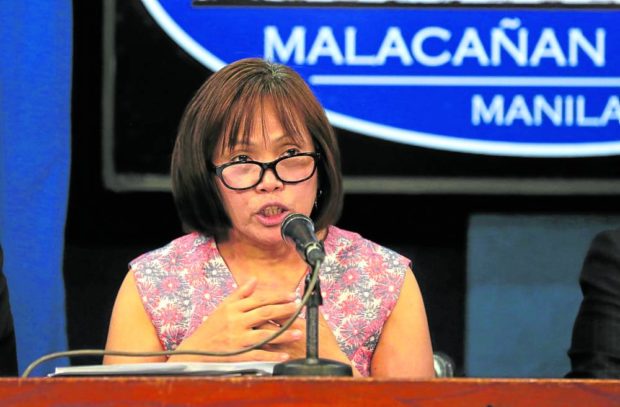MANILA -Interest rates on government securities are expected to decline after Fitch Ratings revised to stable from negative its outlook on the Philippine government’s credit rating, according to National Treasurer Rosalia de Leon.
De Leon said this as the national government raised P25 billion as planned from the issuance of seven-year Treasury bonds, and seeing the cost of borrowing go down.
The auction was 1.2 times oversubscribed with lenders making available a total of P30.6 billion.
The resulting average rate for the reissued T-bonds was 5.774 percent, which was 22.6 basis points (bps) lower than the coupon rate of 6 percent when these were originally issued last April.
“Rates are within secondary level and are even lower than average rates of yesterday’s auction,” De Leon said, referring to Monday’s auction of Treasury bills.
Corporate bonds
However, the yield on corresponding corporate bonds at the secondary market was pegged 9.3 bps lower at 5.681 percent, and for government bonds 7.1 bps lower at 5.703 percent.
“We see rates declining as a result of both Fitch outlook adjustment to stable and MB (Monetary Board) pause on policy rates last week,” she said.
Faster growth
In their latest monthly report, First Metro-UA&P Capital Markets Research said the national government was not expected to push yields upwards since it has increased its cash position by P900 billion by the end of the first quarter while the second quarter sees tax revenue inflows peaking for the year.
Fitch Ratings said in a statement the revision of the outlook reflected their assessment that the Philippines’ economic policy framework remains sound and in line with other sovereigns that are rated “BBB,” despite its low scores on World Bank Governance indicators.
READ: Fitch Ratings improves outlook on PH to stable from negative
According to Nicholas Mapa, senior economist at ING Bank, Fitch Ratings’ stable outlook on the Philippines’ investment-grade credit rating of “BBB” will be crucial for gross domestic product to sustain its pace of growth in the coming months.
Felipe Medalla, Bangko Sentral ng Pilipinas Governor, noted that a ‘stable’ outlook means that the credit watchdog is not likely to change its rating over a one- to two-year period.
Considering this, Medalla said the BSP “remains committed to using the tools at its disposal to address the current challenges brought about by inflation and developments in the global banking system.”
Michael Ricafort, chief economist at the Rizal Commercial Banking Corp., said that going forward, faster growth in the economy, together with tax and other fiscal reform measures to help sustain the country’s favorable credit ratings at above the minimum investment grade.
“New taxes and higher tax rates need to be fair, equitable, and progressive, especially targeted to those that can afford them or those from the higher income brackets or at least prevent adding burden to the poor, most vulnerable sectors, and/or those hit hard by the pandemic,” Ricafort said.
READ:
https://business.inquirer.net/399694/fitch-ratings-wary-of-rising-unsecured-loans-in-ph
